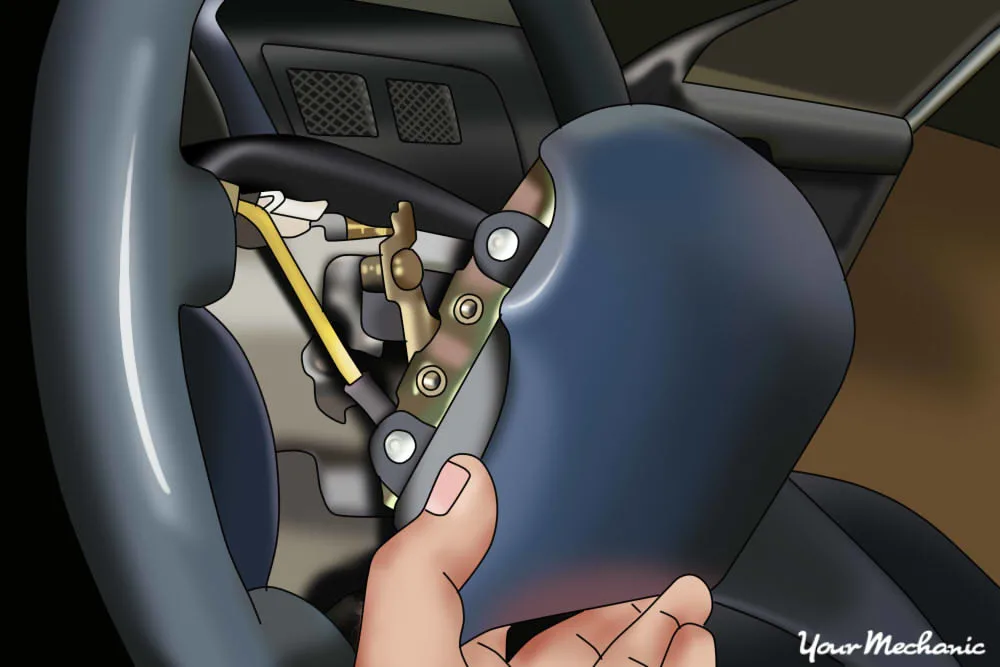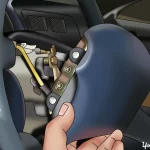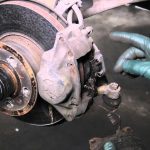Horn Honks When Turning: Main Causes and Quick Fixes
Have you ever experienced your car’s Horn Honks When Turning? This startling issue can make you think something is wrong with your steering or horn system. But in most cases, there are simple explanations and fixes to silence those surprise honks.
In this article, we’ll explore the main reasons why car horns can honk when turning the steering wheel. You’ll discover potential solutions for Chevrolet, Jeep, Toyota, Honda, Nissan, and other common models. With some basic mechanical checks and adjustments, you can remedy this annoyance and restore peace and quiet while driving around bends.
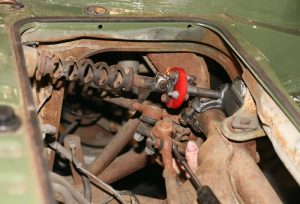
Loose or Faulty Steering Wheel Connections
A loose mechanical connection in your steering column is one of the most common reasons horns unintentionally honk when turning. As you rotate the wheel, wires inside the column may be tugged or components may shift enough to trigger the horn circuit.
Tightening nuts/bolts around your steering wheel or replacing the clockspring (a coiled wiring connector inside the column) can often solve this frustrating issue. It takes some dashboard disassembly to access these parts – an easier DIY fix for simple vehicles compared to complex luxury cars or trucks.
Check for Visual Damage First
Before taking anything apart, visually inspect your steering wheel and horn control areas for any damaged or disconnected wires that could be touching. Electrical tape can temporarily secure any loose connectors you spot.
Faulty Clockspring Mechanisms
The internal clockspring that allows your steering system’s electric signals to remain connected while turning is prone to wearing out over time. Faulty clockspring operation is a very common reason horns honk erratically when you change direction.
Symptoms include:
- Horn honking when turning left or right
- Airbag warning lights turning on
- Other electrical failures like turn signals not working
Luckily, while replacing a clockspring component requires some expertise, the parts themselves are relatively affordable at around $50-200 depending on your vehicle make and model.
Most common vehicle clockspring issues:
- Older Hondas like Civics and Accords
- Jeep Grand Cherokees
- Nissan Altimas and Pathfinders
- Toyota RAV4s and Camrys
- Many Chevrolet trucks and SUVs
If you have any of the symptoms paired with a flaky horn, focus troubleshooting efforts around the clockspring first. While not extremely complicated, this fix is best left to professional mechanics if you aren’t highly DIY-skilled.
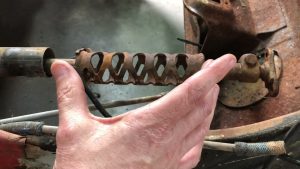
Horn Control Electrics Activated by Body Motion
Today’s sensitive vehicle electronics can also sometimes mistakenly set off the horn when chassis motion triggers horn button circuits. This often occurs in older vehicles, but also in some newer models as parts age.
Vibration or twisting while turning can essentially “tap” the horn controls just enough to produce a honk. The same thing can happen when driving over large bumps or uneven terrain.
Try securing any wiring harnesses connected near horn button assemblies. Adding insulation helps cushion components from normal vibrations during steering or suspension movements.
Face it though – if your ride’s electricals are sketchy due to aging, exposure to elements, or too many improvised add-on accessories, tracking down quirky glitches gets harder over time. Consider upgrading suspect connectors or circuits if you keep battling mystery honks while cornering.
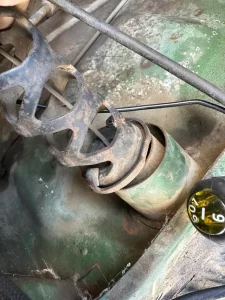
Steering Wheel Angle Sensor Malfunctions
Today’s advanced vehicle systems rely on extremely precise data from dozens of sensors monitoring everything happening both inside and outside the vehicle. One important set of electronics provides constant wheel angle feedback to stability control, transmission shift timing, and safety systems.
If this sensor becomes contaminated or fails, it can confuse other systems and produce some wacky symptoms. Intermittent and seemingly random horn honks when turning represent one possibility if wheel sensor data goes haywire.
Troubleshoot by:
- Checking for stored diagnostic trouble codes
- Monitoring the wheel angle sensor’s live data feeds on a scanner while cornering to identify glitches
Replace the faulty sensor if errors appear when testing its signal outputs during turns. For more complex late model vehicles, professional all-systems diagnostics may be required to pinpoint any coding issues between components.
The Bottom Line on Honking Horns
While a horn that honks on its own can certainly be alarming and annoying, in most cases it stems from a handful of common culprits. Tracking down loose steering components, damaged clockspring wiring, or worn sensors typically solves the problem.
For quick checks, visual inspections paired with simple mechanical and electrical adjustments often work. But if you’re stumped after looking under-hood, have a professional technician perform computerized testing and pinpoint any underlying issues for you.
With the right diagnosis and repairs, you can silence those embarrassing honks when turning and restore comfortable, reliable driving. Don’t ignore signs of potential problems either – addressing minor glitches early prevents more expensive damage down the road.
References:
Wikipedia – Automobile steering technologies and mechanics overview: https://en.wikipedia.org/wiki/Automobile_steering_technologies_and_mechanics
Automotive Training Institute (ATI) – Diagnosing GM Horn Activation Issues
https://www.autotraining.net/tech/i/steering/horn/
